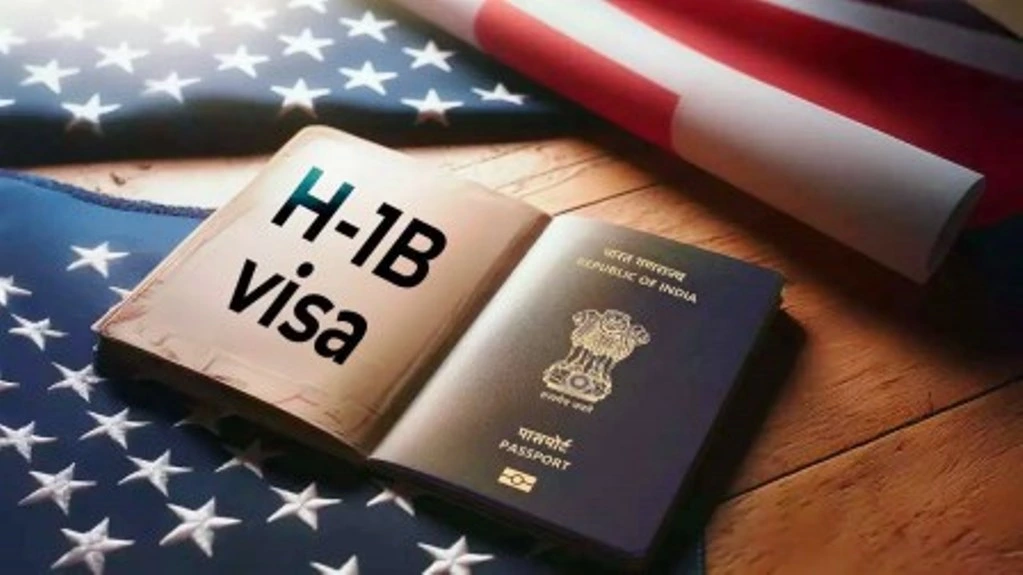Indian-origin tech companies, including Infosys and TCS, secured a significant share of H-1B visas issued by the US. Learn about the data and what this means for the future of the H-1B program.
Indian-Origin Tech Firms Secure 1/5th of US H-1B Visas in 2024: Infosys and TCS Lead
TCS, Infosys, and Other Indian-Origin Tech Firms Corner 1/5th of H-1B Visas Issued by US
Indian-origin tech companies, including Infosys and Tata Consultancy Services (TCS), have secured a substantial share of H-1B visas issued by the United States in 2024. According to recent data from the US Citizenship and Immigration Services (USCIS), Indian firms received about 1/5th of all H-1B visas issued in the April-September 2024 period. This highlights the continued dominance of Indian tech companies in the highly competitive H-1B visa program.
H-1B Visa Data Breakdown: Leading Indian Tech Firms
Out of the 1.3 lakh H-1B visas issued during this period, 24,766 visas were allocated to Indian-origin companies. Infosys emerged as the top recipient, with 8,140 visas, followed by TCS with 5,274 visas. These figures showcase the growing influence of Indian tech giants in the US job market, particularly in fields requiring specialized skills.
Interestingly, Infosys ranked second only to Amazon, which topped the list with 9,265 visas. Cognizant, another major player, also secured a notable position with 6,321 visas. These numbers underscore the critical role Indian tech companies play in supporting the US tech industry’s demand for skilled labor.
Other Indian Tech Firms in the US H-1B Visa Program
In addition to Infosys and TCS, other Indian-origin firms also received significant numbers of H-1B visas. Wipro received 1,634 visas, while Tech Mahindra was granted 1,199 visas. HCL America, another major IT player, received 2,953 visas, continuing its strong presence in the US market.
These companies have consistently ranked among the top employers for H-1B visa holders, which has contributed significantly to their growth and expansion in the US.
The H-1B Program and Its Impact on the Tech Industry
The H-1B visa program allows US companies to temporarily hire foreign workers in specialty occupations that require a high level of expertise. Indian companies, particularly in the technology sector, have been some of the largest beneficiaries of this program.
The continued reliance of companies like Infosys, TCS, and others on H-1B visas reflects the growing demand for highly skilled tech professionals in the US. These companies have played a pivotal role in filling gaps in the US labor market, particularly in fields such as software development, IT services, and engineering.
The Future of H-1B Visas and Regulatory Changes
While Indian-origin tech firms continue to dominate the H-1B program, the future of the program may face challenges due to ongoing regulatory changes and public sentiment. Some critics of the H-1B program argue that it allows US businesses to replace American workers with foreign labor at lower wages. In response, former H-1B visa holder Elon Musk, CEO of Tesla, publicly expressed support for the tech industry’s reliance on foreign workers. In a post on X on December 28, Musk emphasized the importance of embracing individuals from diverse backgrounds who contribute to the US economy through their hard work and skills.
His views were echoed by President-elect Donald Trump, whose first administration imposed restrictions on the H-1B program in 2020. Trump argued that the program allowed companies to substitute American workers with lower-paid foreign labor, a position that has sparked ongoing debate about the future of the program.
Indian Tech Firms and the H-1B Visa Program
In conclusion, Indian-origin tech companies like Infosys, TCS, and Cognizant continue to be major players in the US H-1B visa program, securing a significant portion of the visas issued each year. As the tech industry’s demand for skilled labor grows, these companies will likely remain key contributors to the US workforce. However, future changes to the H-1B visa rules could reshape the landscape, balancing the needs of US businesses with broader immigration reform.



